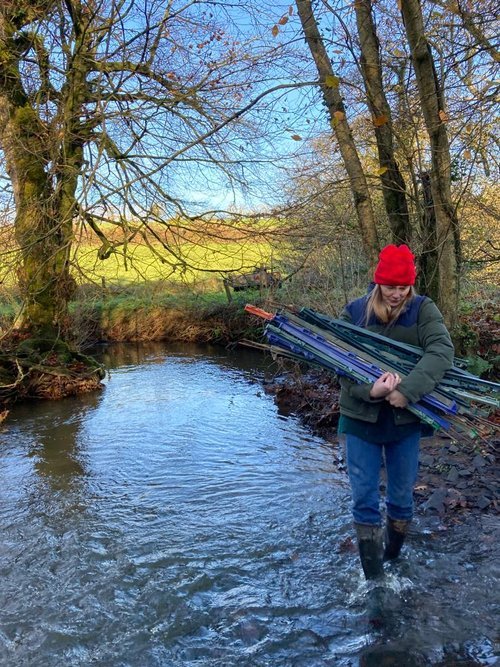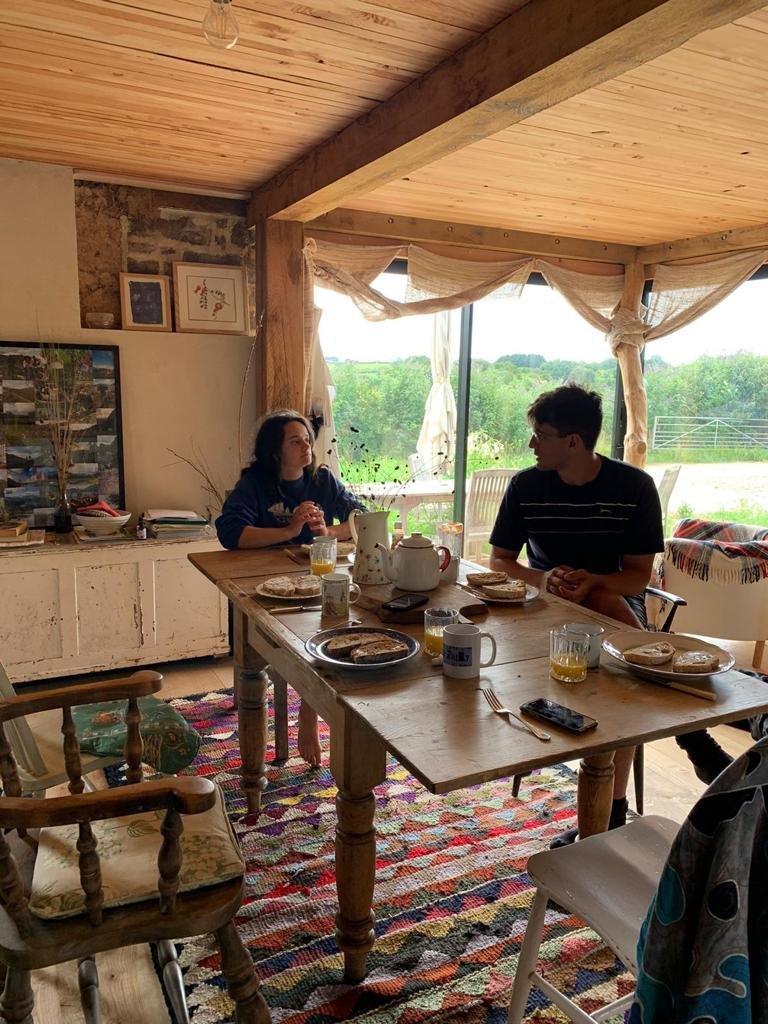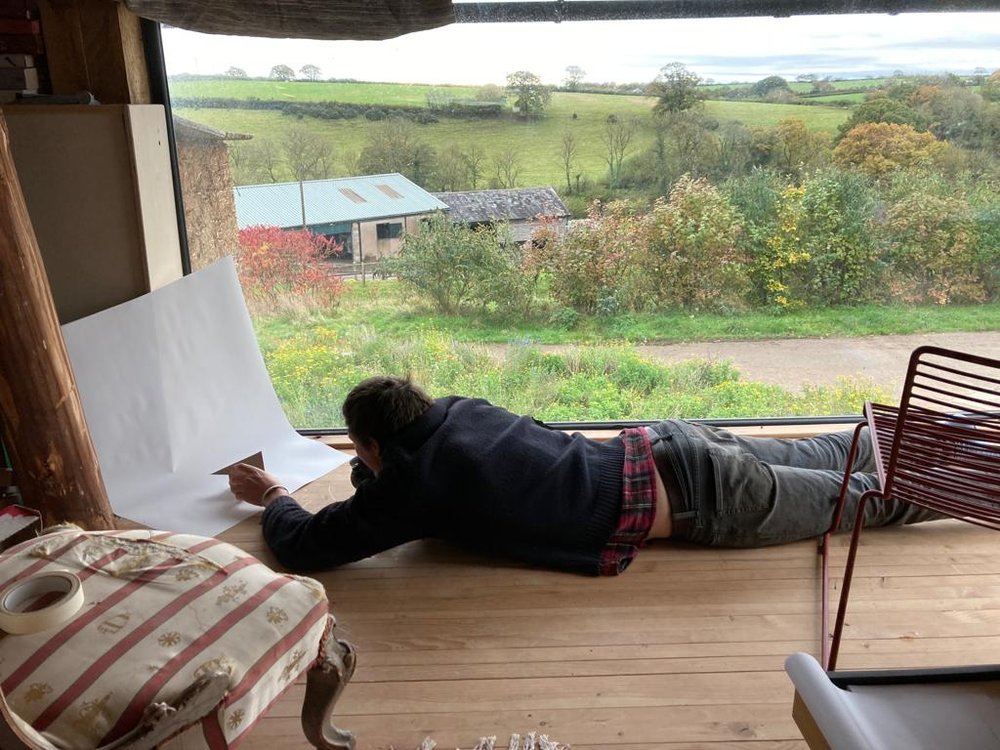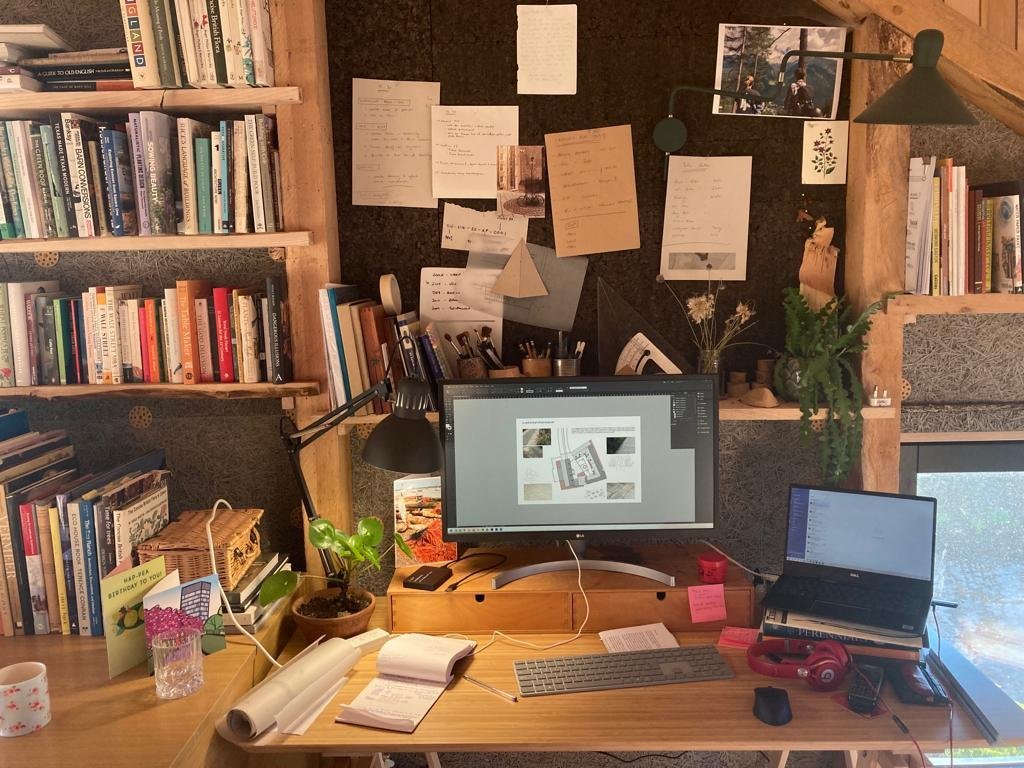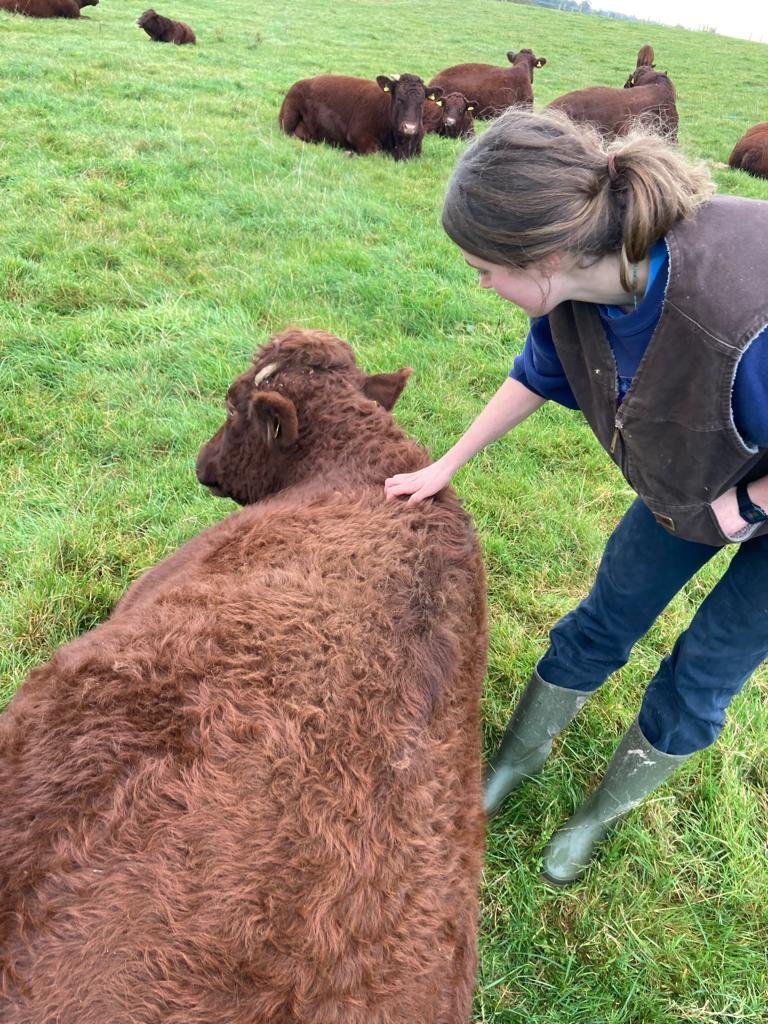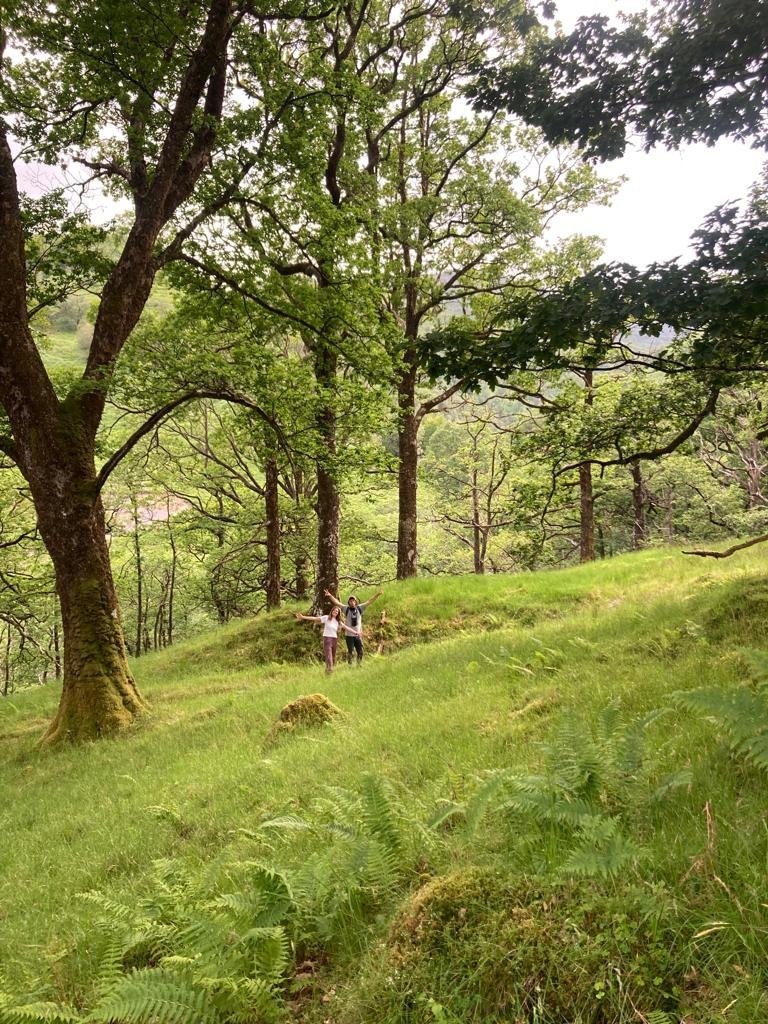Life at Digg and Co.
Autumn turns to winter at Digg and Co. HQ. The last leaves fall from the trees around the farm, wellies and waterproofs become a daily essential, and a roaring fire keeps us warm as we work in the studio. Being part of Digg and Co. is more of a lifestyle than just a desk job, but that’s what makes it so special.
The studio, nestled amongst the rolling hills of Devon, acts as the meeting point for a network of people collaborating on projects of many different scales, but all based around habitat restoration and nature recovery. Studio life isn’t defined by a typical ‘employer/employee’ hierarchy, but rather operates as a collection of individuals who each bring a different skill set to the table. We each have our strengths, and work is divided as such: amongst the team we are landscape architects, farmers, ecologists, architects, garden designers, environmentalists, interior designers. It is this diversity of minds, sitting around a table, discussing big ideas (over a cup of tea, of course) that makes the studio feel so exciting and dynamic. We are constantly learning from one another, challenging the idea that ‘design’ is a distinct discipline. In the early stages of my career, having graduated from university two years ago, it’s awesome to still be learning every single day, and to be constantly exposed to and challenged by ideas outside of my area of knowledge.
The pattern of work is variable depending on project timelines, weather/seasons, and the demands of a working farm. Some weeks will be all hands on deck in the studio - the final push on a big project ready to start on site. Other weeks will be all hands on deck on the farm - the last window of fine weather to bale the hay before the rain comes in. Most weeks are somewhere in between - a studio day punctuated by planting bulbs or checking up on the cattle. It’s awesome to have this direct connection between learning in the studio and learning in the field (literally). We can make observations on a micro scale and return to the studio to apply our understanding to projects immediately, of up to tens of thousands of acres.
Having lived my whole life in a city, moving to (very rural) Devon felt like an exciting new chapter for me. Of course, there were feelings of doubt: I was moving 350 miles South of where I grew up, leaving behind many friends and family, starting a new job and, of course, there’s the whole farming thing! Not coming from a farming background, I’ve had a lot of learning to do on that front. I’m still adjusting to being totally relaxed amongst a herd of excited cattle, and have had a lot of lingo to catch up on (Steers? Heifers?). Hand-milking a cow or driving a quad bike aren’t exactly skills you pick up when living on a terraced urban street. But with the support of the Mill Barton gang, and the desire to learn more, I’m starting to get the hang of things around here, growing my confidence each time we head out onto the farm. It’s completely eye-opening, gaining a deeper understanding of how these animals are key players in ecosystems, of how food is produced, and of the workings (or, not-workings) of the UK food system.
Although the population is sparse, the sense of community feels extremely strong in Devon, and this is reflected in the studio culture. Each day we share lunch, taking turns to collect veg from the garden, cooking or washing up. We help each other out, dog-sitting or picking up shopping. Work blurs into life and life blurs into work, with a post-work bbq on a summer evening or a pint in the pub on a lousy November night. I’m lucky enough to call my colleagues friends. It’s much more encompassing than a ‘typical’ job, but the energy generated by spending time with like-minded people with a common passion and goal, living alongside nature and the seasons, is infectious. Six months in, I couldn’t imagine myself anywhere else.


